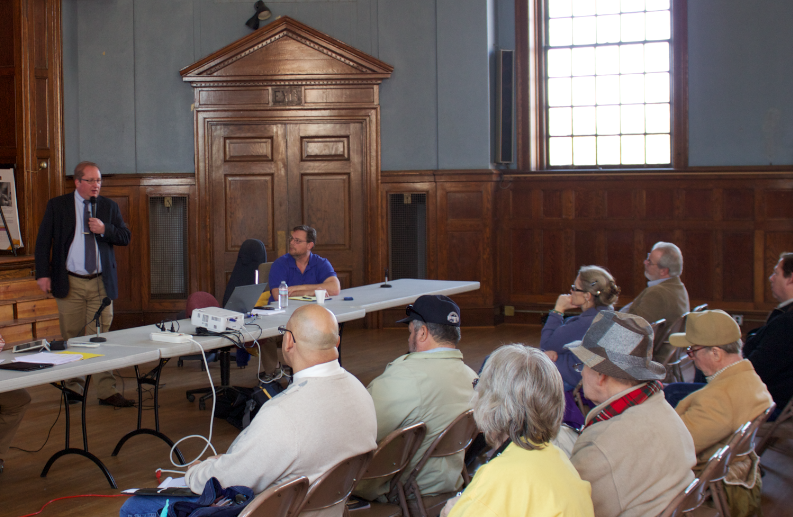Residents voice concerns on sewage rates
Residents voiced opinions, raised concerns and made suggestions about how the town should charge for sewer usage during a public presentation at Town Hall Saturday morning.
The presentation and Q-and-A session was led by Michael Schrader of Tighe and Bond, the Pocasset-based engineering and environmental consulting firm that was commissioned by Wareham last May to study alternatives to the town's current flat-rate sewer fee system.
Currently, Wareham sewer users pay a flat annual $596 per EDU (equivalent dwelling units). A single-family home is charged one EDU, while a two-unit duplex is generally charged two EDUs. Businesses are scheduled similarly. For example, restaurants are charged one EDU per 12 seats; gas stations are charged one EDU per service island.
"It's very hard to match an EDU to a use," Schrader said, as he displayed a chart that showed a great disparity between the flow rates of businesses that all pay the same fee.
He noted that only 11 percent of towns in Massachusetts use a flat-fee system similar to Wareham's.
Schrader said some towns operate under a combination of syste. For instance, one town uses EDU rates for residences and charges commercial and industrial users on the basis of metered usage.
A number of residents expressed concern that moving to a usage-based system in Wareham would put a larger burden on year-round residents, who currently pay no more than the owner of a seasonal home.
Other residents said a usage-based billing system would be fairer and promote water conservation.
While the simplest way of charging for usage would be to base sewer charges on already-metered water usage, some residents asked about the possibility of billing sewer usage on the basis of only wastewater produced. They pointed out that water used for outdoor showers or on lawns and gardens doesn't go into the sewer system.
"Some communities will allow you to put a second meter, a deduct meter in the basement," Schrader responded. "You would pay for that (second meter) yourself, then you would get two bills. Your water bill would be for both meters but the sewer bill would deduct off the non-consumptive use."
Wareham resident Ed Pacewicz asked for comparisons to other towns that have seasonal populations and Selectman Steve Holmes wanted to know how other nearby towns established their sewer rates.
"The intent was to give an overview," Selectman Peter Teitelbaum said of Saturday's session. "Certainly as we go forward there is going to be a lot more data and information broken down into a line-item form so people can see how it works."
"Your input is critical to us," Guy Camphina, the director of the Wareham Water Pollution Control Facility, told those in attendance Saturday. "The more heads we can put together, the better job we can do for the whole. Not everybody is going to be happy, but we're looking for what's best for the whole."
















